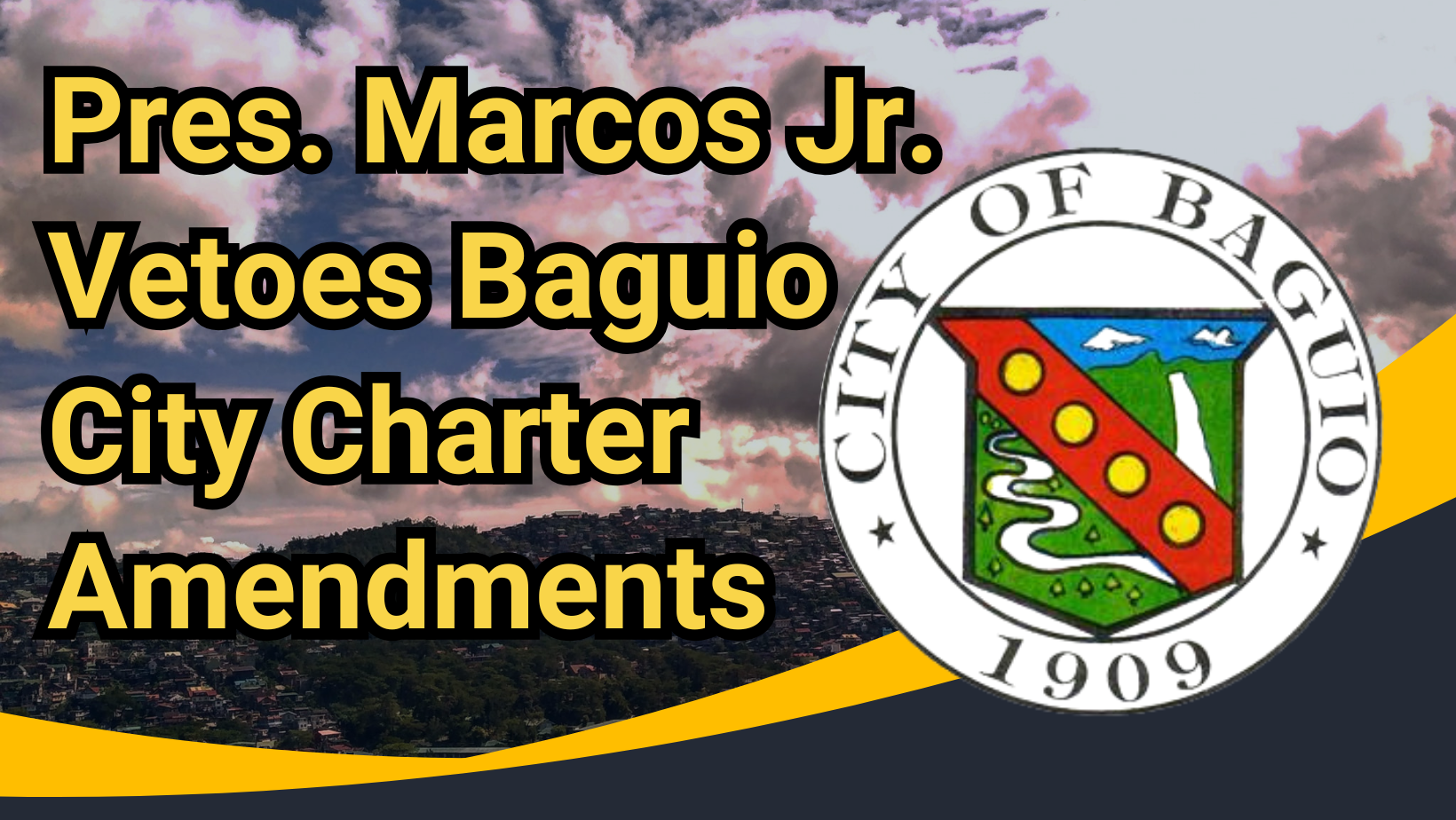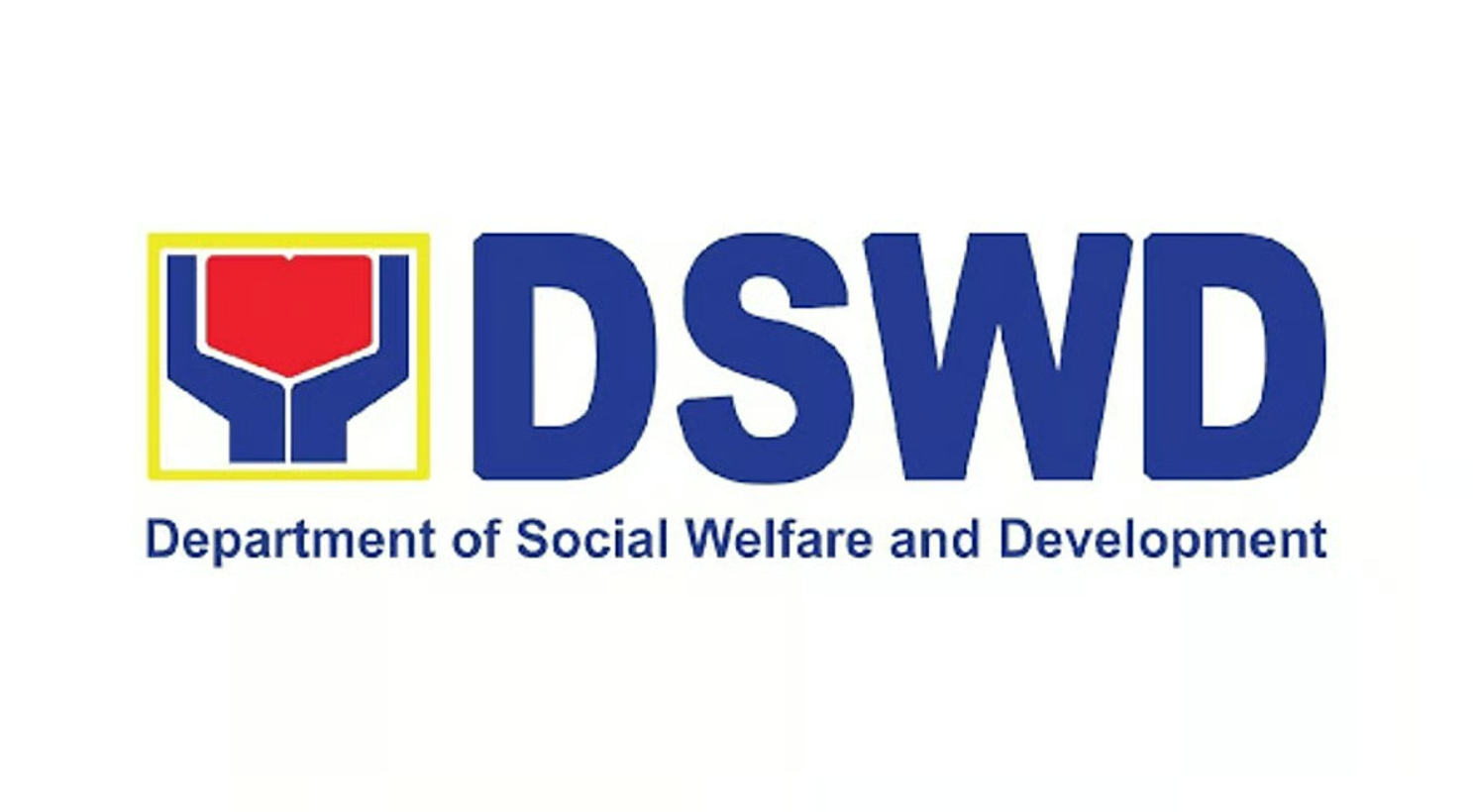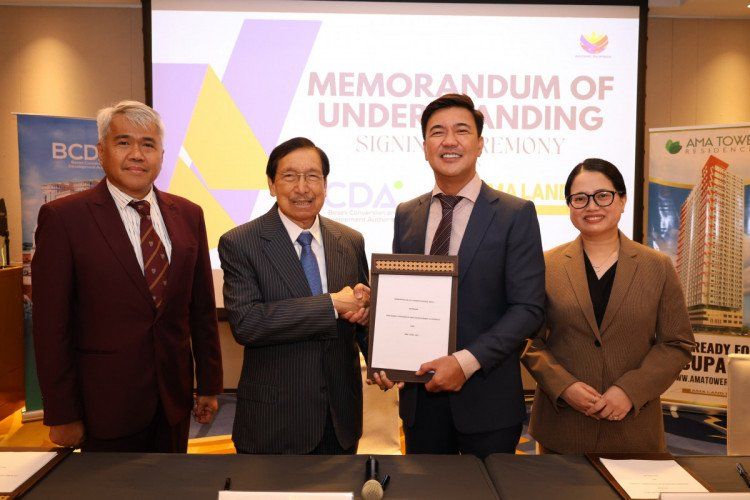Bongbong Marcos Vetoes Baguio City Charter Amendments, Sparks Push for Inclusive Rewrite
Andy Ignacio — April 12, 2025
Bongbong Marcos Vetoes Baguio City Charter Amendments,
Sparks Push for Inclusive Rewrite

BAGUIO CITY — April 11, 2025 — President Ferdinand “Bongbong” Marcos Jr. has vetoed House Bill No. 7406, a proposed amendment to Baguio City’s revised charter, signaling both a setback and a new opportunity in the city’s long struggle to fix deeply rooted governance issues.
The bill, authored in the house of representatives and sponsored in the Senate by Senator JV Ejercito, sought to correct what many city officials described as “sloppy mistakes” in Republic Act No. 11689—a 2022 law that updated the city’s 1909 charter but left behind errors and controversial provisions. In a text message to Palace reporters, Communications Undersecretary Claire Castro confirmed the twin vetoes: “(The) legislative naturalization ni (of) Li Duan Wang and the bill on modern Baguio City Charter (have been) vetoed by the President.”
Congressman Mark Go and the 2022 Charter
The city’s revised charter, Republic Act No. 11689, was authored by Congressman Mark Go and lapsed into law in 2022. While the legislation aimed to modernize Baguio’s foundational legal framework, city officials and civic leaders soon flagged numerous issues. Among the most critical concerns were provisions that appeared to undermine Baguio’s autonomy, create jurisdictional confusion over Camp John Hay, and fail to address indigenous and land rights.
Crucial details were missed in the 2022 version, prompting the need for corrective legislation—hence the filing of HB 7406. The now-vetoed bill was meant to address these oversights and refine the city’s governance structure.
What Was in the Vetoed Bill?
HB 7406 sought to remove a provision requiring Baguio City to submit ordinances and programs for approval by the Benguet Provincial Board—a clause seen as unconstitutional for a highly urbanized city. Local officials, including Vice Mayor Faustino Olowan and members of the City Council, warned that this setup downgraded Baguio to a component city under provincial control.
The bill also addressed boundary and land use concerns, including the exclusion of Camp John Hay from the Baguio Townsite Reservation. Critics argued that this undermined the Bases Conversion and Development Act of 1992 and weakened the city's claim over the area. The bill proposed removing the John Hay Management Corporation from a special land committee, which some viewed as a conflict of interest.
Indigenous Rights and Land Justice
The revised 2022 charter failed to address the long-standing exclusion of Baguio's Ibaloy indigenous community from the Indigenous Peoples’ Rights Act (IPRA) of 1997. Local leaders and indigenous groups see this as a continuing denial of ancestral domain rights and a historical injustice that must be rectified in any new charter.
Councilors Jose Molintas and Peter Fianza have called for a complete overhaul of the charter—one that not only ensures effective governance but also centers on indigenous sovereignty, land classification, and equitable urban planning.
Gladys Vergara: “This Veto Is a Reset Button”
In a Facebook post following the veto, congressional aspirant Gladys Vergara, who is not a lawyer but has been active in pushing for governance reform, welcomed the decision:
“The recent veto of the proposed amendments to Baguio’s Revised City Charter by the President is a welcome and timely development—especially for those of us who have long called for genuine consultation and inclusive reform.”
“This veto opens the path for us to start fresh—to rewrite the City Charter in a way that fully represents the voice of our people, protects our land and indigenous rights, secures our autonomy, and sets a clearer direction for our city's future.”
Vergara’s Agenda 10 in her legislative platform is titled “City Charter Code Revision”, and it includes the following key points:
- Revisit the City Charter Code to recognize Baguio’s autonomous role in managing its own affairs, finances, and development plans.
- Amend or repeal problematic sections of the current charter and fix technical and legal inconsistencies.
- Push for comprehensive boundary surveys to clarify jurisdictional limits.
- Recognize and protect land rights and ancestral claims, even where conflicting claims exist.
- Mandate a comprehensive land audit, including an inventory and mapping program, and safeguard existing TSA claimants.
- Segregate 13 barangays from Camp John Hay and BCDA control, reinforcing local governance.
- Strengthen local autonomy through clearer governance mechanisms.
- Uphold and promote Indigenous Peoples’ rights and cultural preservation.
- Create participatory governance mechanisms that ensure genuine, grassroots-level consultation.
“If given the chance to serve in Congress,” she added, “I will lead this process with integrity, transparency, and deep respect for Baguio’s unique identity.”
What Happens Next?
With the proposed amendments vetoed, Baguio continues to operate under a charter widely viewed as flawed. The veto, however, may serve as a reset button for the city—a chance to craft a genuinely inclusive, historically grounded, and forward-looking charter.
As of this writing, the full veto message from Malacañang has not yet been released. But the signal is clear: any future charter revision will need broader community input, legislative finesse, and a commitment to justice—especially for Baguio’s indigenous and marginalized communities.




